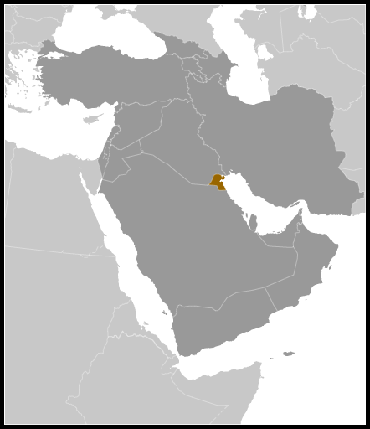Kuwait (Facts & Figures)
Background: Britain oversaw foreign relations and defense for the ruling Kuwaiti AL-SABAH dynasty from 1899 until independence in 1961. Kuwait was attacked and overrun by Iraq on 2 August 1990. Following several weeks of aerial bombardment, a US-led, UN coalition began a ground assault on 23 February 1991 that liberated Kuwait in four days. Kuwait …
Background:
Britain oversaw foreign relations and defense for the ruling Kuwaiti AL-SABAH dynasty from 1899 until independence in 1961. Kuwait was attacked and overrun by Iraq on 2 August 1990. Following several weeks of aerial bombardment, a US-led, UN coalition began a ground assault on 23 February 1991 that liberated Kuwait in four days. Kuwait spent more than $5 billion to repair oil infrastructure damaged during 1990-91. The AL-SABAH family has ruled since returning to power in 1991 and reestablished an elected legislature that in recent years has become increasingly assertive. The country witnessed the historic election in May 2009 of four women to its National Assembly.
Economy – overview:
Kuwait has a geographically small, but wealthy, relatively open economy with self-reported crude oil reserves of about 104 billion barrels – about 9% of world reserves. Petroleum accounts for nearly half of GDP, 95% of export revenues, and 95% of government income. Kuwaiti officials have committed to increasing oil production to 4 million barrels per day by 2020. Kuwait survived the economic crisis on the strength of budget surpluses generated by high oil prices, posting its eleventh consecutive budget surplus in 2009. Kuwait has done little to diversify its economy, in part, because of this positive fiscal situation, and, in part, due to the poor business climate and the acrimonious relationship between the National Assembly and the executive branch, which has stymied most movement on economic reforms. Nonetheless, the government in 2009 passed an economic development plan that pledges to spend up to $140 billion in five years to diversify the economy away from oil, attract more investment, and boost private sector participation in the economy. Increasing government expenditures by so large an amount during the planned time frame may be difficult to accomplish.
Government – overview:
Chief of state: Amir SABAH al-Ahmad al-Jabir al-Sabah (since 29 January 2006); Crown Prince NAWAF al-Ahmad al-Jabir al-Sabah (since 7 February 2006)
Head of government: Prime Minister NASIR AL-MUHAMMAD al-Ahmad al-Sabah (since 3 April 2007); First Deputy Prime Minister JABIR AL-MUBAREK al-Hamad al-Sabah (since 9 February 2006); Deputy Prime Minister MUHAMMAD AL-SABAH al-Salim al-Sabah (since 9 February 2006)
cabinet: Council of Ministers appointed by the prime minister and approved by the amir
elections: none; the amir is hereditary; the amir appoints the prime minister and deputy prime ministers
Population:
2,692,526
country comparison to the world: 139
note: includes 1,291,354 non-nationals (July 2009 est.)